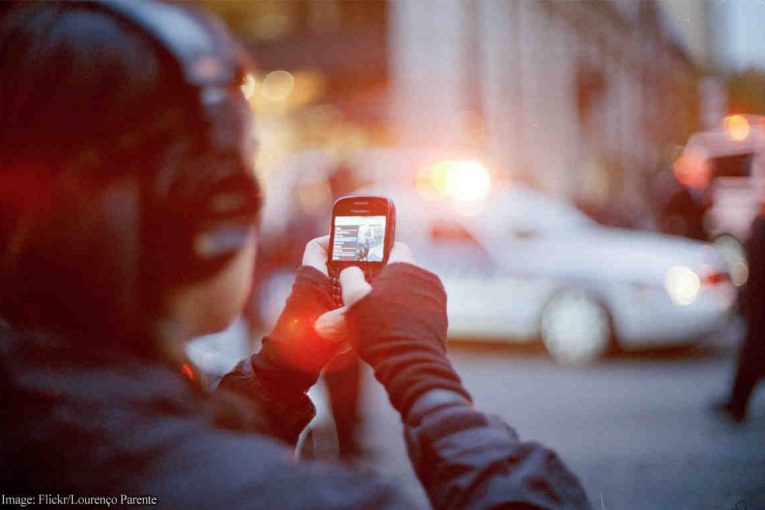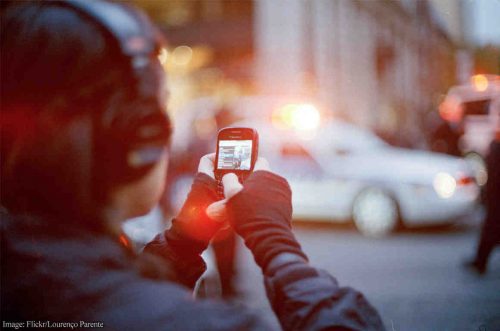

By The Vanguard Staff
RICHMOND, VA/PHONENIX, AZ – Whether a passenger in a vehicle stopped by police in North Carolina can livestream the police is the question a U.S. Appeals Court “grappled” with last week, according to news reports in Reuters.
And, in Arizona, a judge temporarily shut down attempts to ban the recording of police up close.
The North Carolina appeal apparently is attracting the attention of civil libertarians and police associations and stems from a traffic stop in October 2018 and a lower court ruling last year dismissing claims against the police, said Reuters.
No decision has yet been announced after a three-judge panel of the 4th U.S. Circuit Court of Appeals here heard the case of if a passenger in a vehicle detained by North Carolina police could livestream the encounter, despite a warning from the officers that doing so was unlawful.
It’s not the only police recording case—in September, U.S. District Judge for the District of Arizona John J. Tuchi held that an Arizona law to ban the recording of police from eight feet or closer, even by news media, is unnecessary.
“If the goal of HB2319 is to prevent interference with law enforcement activities, the Court fails to see how the presence of a person recording a video near an officer interferes with the officer’s activities,” Tuchi wrote in his order issuing a temporary injunction against the law.
The federal lawsuit, filed by the ACLU and about a dozen new media outlets, argues the law “creates an unprecedented and facially unconstitutional content-based restriction on speech about an important governmental function.”
“Today’s ruling is an incredible win for our First Amendment rights and will allow Arizonans to continue to hold police accountable,” K.M. Bell, a staff attorney for the ACLU of Arizona, said in a press release. “At a time when recording law enforcement interactions is one of the best tools to hold police accountable, we should be working to protect this vital right—not undermine it.”
In the North Carolina case, an officer told vehicle occupants, “We ain’t gonna do Facebook Live, because that’s an officer safety issue.” But another officer said recording, without a live broadcast, would have been acceptable. “So in the future, if you’re on Facebook Live, your phone is gonna be taken from you,” that officer said.

The court acknowledged it was a matter of the First Amendment right under the U.S. Constitution allowing the recording of police in public performing official duties, and the claim by police that the recording impinging on the officers’ safety.
U.S. appeals court rulings in recent years have sided with First Amendment claims to protect bystanders recording police in public, but the new questions is whether a passenger or driver in a detained vehicle can, in effect, “broadcast the encounter” live, according to legal pundits.
“It’s not a First Amendment case,” Circuit Judge Paul Niemeyer said at the hearing, adding, “The question you ought to be addressing is what rights do the officers have during the course of a traffic stop?”
Passenger Dijon Sharpe’s attorney, Andrew Tutt, a senior associate at the law firm Arnold & Porter Kaye Scholer, did not immediately comment to Reuters, and the lawyer for the Winterville Police Department in North Carolina, Dan Hartzog, Jr., of Hartzog Law Group, declined to comment. Sharpe, who is Black and has said he was a victim of police abuse just months earlier, was a front passenger in a car the Winterville police stopped for an alleged traffic violation.
Attorney Tutt argued the police had no reason to try to end Sharpe’s live broadcast, noting, “They just said it was something they could ban because they felt like banning it.” 